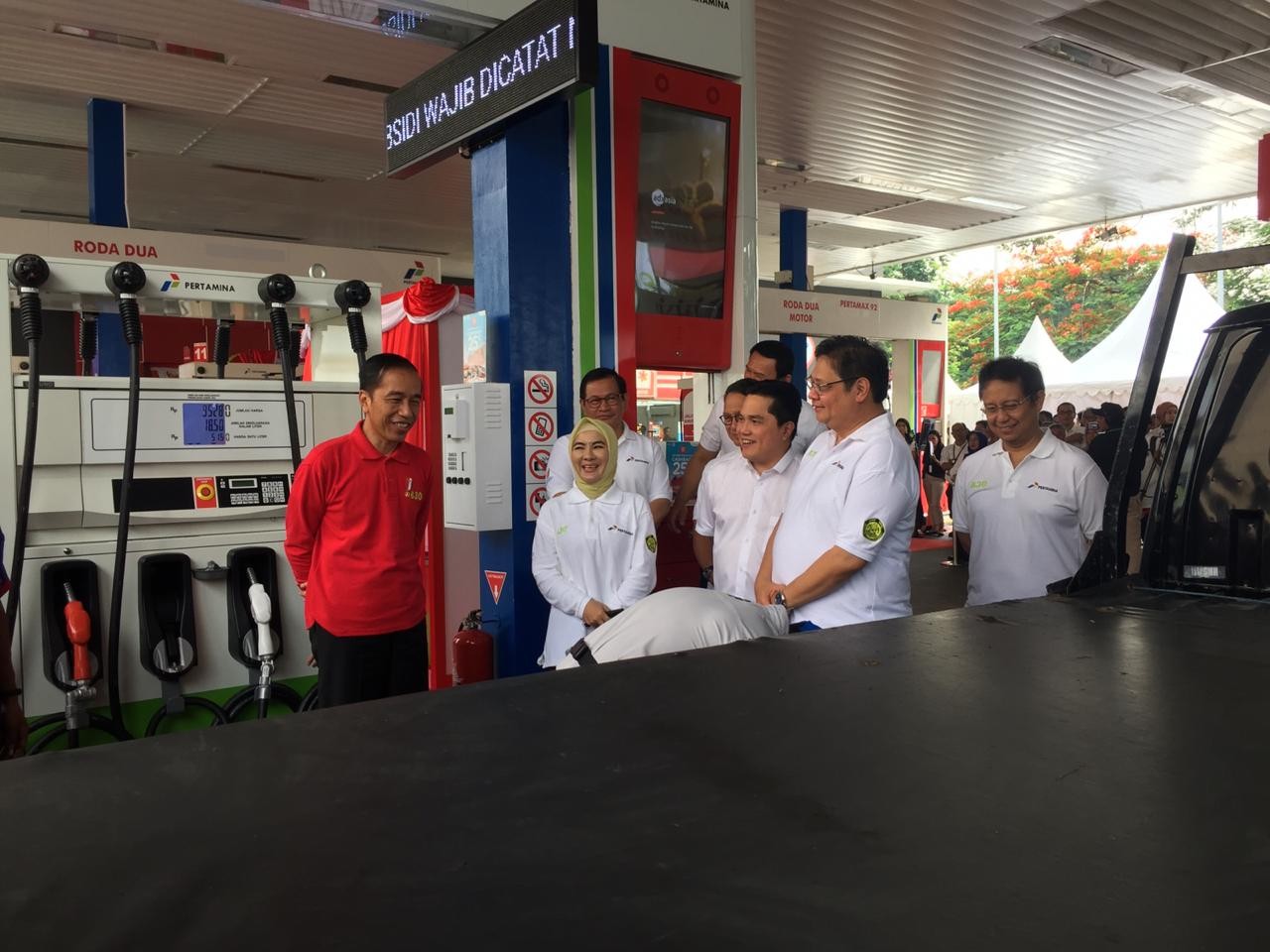Popular Reads
Top Results
Can't find what you're looking for?
View all search resultsPopular Reads
Top Results
Can't find what you're looking for?
View all search resultsHigh palm oil price delays Indonesia’s B40 biodiesel plan
Change text size
Gift Premium Articles
to Anyone
D
oubts have emerged over Indonesia’s plan to roll out the use of B40-type biodiesel by July this year as the high price of crude palm oil (CPO) renders such fuel uneconomical.
Stakeholders have said that Indonesia’s biodiesel subsidy budget for this year, sourced from the CPO export levy and estimated at Rp 46 trillion (US$3.29 billion), was insufficient for the B40 program given the high current CPO price, which has rallied to around $1,080 per ton this year from around $530 in May 2020.
“Right now, price is the main hurdle for B40. The sharp rise in CPO prices has made biodiesel prices rise significantly as well,” energy economist Alloysius Joko Purwanto, who penned numerous articles on transportation economics, told The Jakarta Post on Thursday.
Joko, a researcher with the Economic Research Institute for ASEAN and East Asia (ERIA), said the difference between biodiesel and diesel prices had climbed from roughly Rp 3,500 per liter late last year to Rp 5,000 per liter today.
Thus, he calculated that Indonesia would need Rp 56 trillion to subsidize a B40 biodiesel program implemented starting in July under current prices, assuming the country consumes 32 million kiloliters (kL) of diesel throughout 2021.
Joko said CPO prices needed to be below $760 per ton to implement B40 this year without exceeding the budget. Prices even needed to be below $900 per ton to implement B30 within the budget limit. The prices are far below the expectations of the Indonesian Palm Oil Producers Association (Gapki) for this year at between $850 and $900 per metric ton of CPO.
Coordinating Economic Minister Airlangga Hartarto had aimed to escalate Indonesia’s biodiesel policy by transitioning from B30 to B40 in July. With its biodiesel policy, the government wants to simultaneously cut Indonesia’s oil imports, raise renewable energy consumption and create domestic demand for the country’s palm oil industry, the largest in the world.
Indonesia has relied on domestic absorption since major markets for palm oil exports, such as the European Union, China, and India, were hit by the COVID-19 pandemic, according to Gapki, last year. Palm oil sales overall dipped 5 percent annually to 51.4 million tons, the association’s data show.
Read also: Palm oil output to rise 4.5% this year
Indonesia’s oil imports dropped 39.7 percent last year to $11.67 billion, according to Statistics Indonesia (BPS).
However, the government still fell short of its renewable energy mix target that hit 11.5 percent instead of the targeted 13 percent.
The government never issued a regulation on the B40 policy but stakeholders still began conducting technical experiments on B40, which denotes a 40-percent biofuel content.
The Energy and Mineral Resources Ministry began a 1,000-hour stationary engine test on B40’s compatibility with conventional car engines. Meanwhile, state-owned oil giant Pertamina successfully produced pure green diesel (D100) – a necessary ingredient to make B40 – using its Dumai oil refinery in Riau, the country’s palm oil heartland.
The Indonesian Automotive Manufacturers Association (Gaikindo), however, did not voice support for implementing B40 in July, explaining that members needed much more time to redesign vehicles to suit the B40 fuel, which is poised to become the world’s highest mandatory diesel blend.
The energy ministry’s renewables director general, Dadan Kusdiana, also confirmed on Feb. 10 that B40 would not happen this year. The government would focus on implementing B30 instead.
“B30 will not be de-escalated. We are waiting for the President’s instruction on when is the right time to escalate it to B40,” said Dadan, referring to President Joko “Jokowi” Widodo.
Indonesia only consumed 88.1 percent of last year’s 9.6 million kL subsidized B30 quota. The government lowered this year’s quota to 9.2 million kL but aims for 100 percent absorption.
To subsidize B30 this year, the Finance Ministry raised in December last year its CPO export levy from a maximum $55 per ton to $255 per ton depending on palm oil prices. Levies are collected by the Indonesian Oil Palm Estate Fund (BPDP-KS).
“That regulation is where we tried to strategize a means of getting the funding needed for the mandatory biodiesel program,” said BPDP-KS head of corporate affairs Achmad “Mauli” Maulizal Sutawijaya during a press conference on Feb. 4.
However, Mauli and Indonesian Biofuel Producers Association (Aprobi) deputy secretary-general Suwandi Winardi acknowledged, also during the press conference on Feb. 4, that high palm oil prices were a key challenge to implementing B40 this year. Both said they were in talks with businesses, regulators and associations to run the program.
“We are optimistic the B40 will be part of the government’s long-to-medium-term program,” said Suwandi.










